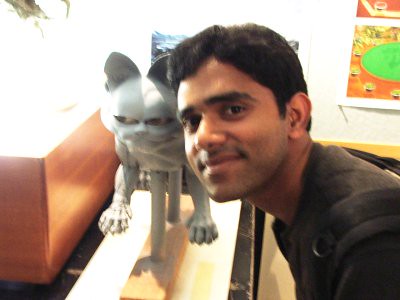During my undergraduate days, I have worked in a state-of-the-art research lab on machine translation from English to Indian languages. One of the main motivations for our work was that we would be bringing the WWW to the 90% of the Indian population which is illiterate in English. Owing to this experience, I obtained a fair knowledge of the key problems in this area and the main technical hurdles to be overcome.
But I believe many of the R & D teams that are working on this are missing the holistic view.
Most of the people in India are illiterate, but they can speak native languages such as Telugu and Hindi. Further, many of the people who are literate are not computer literate. And amongst the computer literate people, most of them are already comfortable with English.
Keeping this in view, of what effectiveness would be a new Desktop Manager with arcane Telugu words for terms such as "Start", "My Computer" and "Control Panel" ?
In places such as China and Japan, communication in English is purely impossible. In other places such as France and Germany, there is a strong linguistic pride and awareness. But in India, both of these are absent. Still I believe there is a target audience in India, albeit of a different variety.
In order to clarify this, let me narrate an experience of mine.
Once during my UG days, I had another strange and unique opportunity. My father, a teacher, has invited me to give a few lectures on Modern Physics and Atomic Theory to the outgoing students of the high school. The medium of instruction was Telugu, not English, as had been mine during my school days. I had great fun teaching, and the students liked me very much as an instructor. Also, I had to put some effort in studying the equivalent Telugu words for the scientific terms. But this experience of teaching in the native language had been very benificial for me - in understanding the subject much clearer.
The fact remains that several of the students in Indian high schools are not literate/comfortable in the English language. This is a major hurdle for them to pick up and read the vast majority of the available literature. Even if they are fairly conversant in the rudimentary English language, they are not accustomed to reading large books in English. This section of people includes, surprisingly, both of my own parents - who are much more comfortable in reading books in Telugu.
But ofcourse, the most informative literature is currently available only in English. A sizeable portion of this is present on the web, and the rest is available in print. The key factors are the relevance and the importance of the information that is available.
A good example for such informative texts are the essays from the Edge Foundation.
The state of the art in machine translation research is well behind producing a reasonable output for real texts such as these. But this output can very well be a good starting point for a human translator.
Ideally, such information should be available in differnt formats (audio, images. video, summarized audio, detailed translated text ..) to cater to the needs of the varied audience. The important thing to note is that the needs of the audience are very different.
- Some people might need to know the latest weather forecasts / stock prices / news headlines in summarized Telugu text.
- Some people might need to know about the latest agricultural techniques in video format.
- Some people might need to report/publish websites or blogs using simplistic Telugu interface and video.
- Students in several schools might need to communicate on their class projects using audio and images.
- Some students (or elders) might need to read books such as "Selfish Gene" and "The End of Poverty" (two personal favorites of mine) in clear Telugu language. Or they might need video and images in an accompanying website.
In my point of view, these are the issues that are really pertinent for the emancipation of education in the Indian scenario.
Issues such as these should be tackled individually and with special care.
There are no magic bullets, such as Indian language GUIs, for solving all these problems in one shot. These problems will be solved, both by building good computer systems and by massive human effort. These twin efforts should go hand in hand.
Particularly, I want to highlight one issue - that of translation of some informative books (such as
The Selfish Gene,
The End of Poverty etc) which are written by highly skilled scientists for a general audience. This is the kind of information that needs to be available for high school students. But unfortunately, neither of these books are translated into Telugu, so far, to my knowledge.
This kind of information is currently being published at a rapid pace, both on and off the world wide web. In order to make this available for the general Indian audience, I think it should be encouraged in universities for UG/PG students to translate these literature into regional languages, and
course-credit assigned for such efforts. (For example, a group of economics students might translate
The End of Poverty)
And by translation, the output need not be a book in Telugu. It can be a website or a series of lectures in images and audio. From my experience (of teaching modern physics in my dad's school), I can say that this will be truly rewarding for the translator too.
Interested people might even maintain weblogs where they post the translated text of specific domains (sometimes translate it as an audio file through speech).
Should we call them transblogs ? These will provide a true breakthrough in bridging the information divide in India.

